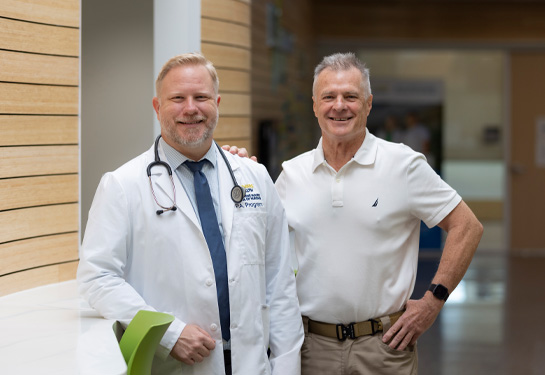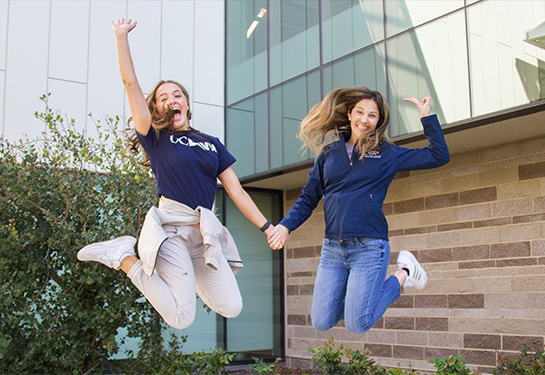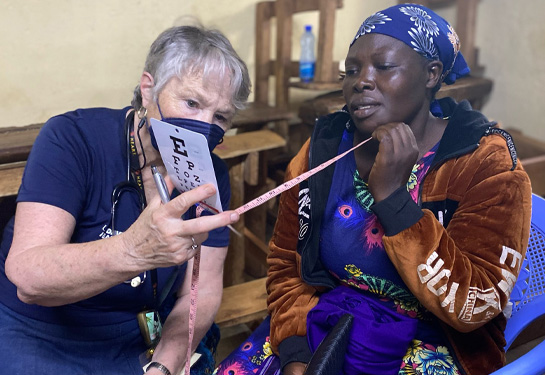UC Davis nursing school opens new Doctor of Nursing Practice Degree program
Hybrid program prepares new family nurse practitioners, fills need for more advanced practice providers in California
Applications opened today for a new degree program at the Betty Irene Moore School of Nursing at UC Davis. For the first time, the graduate-only school offers a Doctor of Nursing Practice — Family Nurse Practitioner (D.N.P.-F.N.P.) Degree delivered in a hybrid format, including online coursework and in-person experiences.
The D.N.P.-F.N.P. is a post-baccalaureate degree program that prepares new family nurse practitioners. The three-year hybrid program combines distanced-based education with four on-campus immersions and prepares advanced practice providers to engage in patient- and family-centered, evidence-based primary care.
According to Kathryn Sexson, D.N.P.-F.N.P. program director, the new program goes beyond clinical education. It offers courses that elevate future providers’ abilities and convictions to become a new type of health care leader.
“Starting a new program in today’s environment allows us opportunities for innovative solutions that I don't think we would have had at any other point in our history. The environment is ripe for doing what I hope everybody's here to do, which is to improve the health and well-being of the nation that we serve,” Sexson said.
Curriculum progression
The D.N.P.-F.N.P. program was carefully designed to take students through a sequential series of courses and clinical experiences. The program first prepares students to think at the doctoral level about their role as a nurse practitioner. It instills critical thinking in all future areas in which they could serve — administration, private practice, community-based practice or hospital care.
The second year of the program focuses on integrating this advanced knowledge into clinical practicums. By shifting students’ thinking from bedside nursing to primary care provider, students will practice and discuss with peers and mentors how to best support patients through their lifespan in multiple clinical environments.
Finally, in year three, students will combine their knowledge and practice in a clinically based scholarly project designed to positively impact clinical outcomes. Students must also complete one of two graduate certificate programs offered by the school: the Health Professions Educator GAC and the Family Caregiving GAUC.
The program is guided by core values of leadership, health equity and innovative clinical practice. Graduates possess the skills, confidence and vision to be agents of change on many levels. They gain critical thinking, clinical excellence and deep understanding of health care systems that prepare them to flourish in practice. They are prepared as leaders to advance health locally, nationally and globally in ways that address the inequities that stand in the way of optimal health and health care equity for all.
Preparing providers to meet the need
According to a report from the California Future Health Workforce Commission, the state expects to be short some 8,000 primary care clinicians, including doctors, nurse practitioners and physician assistants, by 2030.
Lack of access to providers already affects remote rural and inner-city residents, communities of color, older adults, those with mental illness or addiction and people without health coverage.
California legislation, signed into law in 2020, allows nurse practitioners to practice independently after a three-year transition to practice under a supervising physician. Though the details are still being worked out, School of Nursing leaders believe the new degree program comes at an optimal time.
“With people over 60 years old forecasted to make up a quarter of California’s population by 2030, we must prepare primary care providers who understand the unique needs of an aging population and who can promote health across the lifespan,” said Dean Stephen Cavanagh. “Our D.N.P.-F.N.P. program prepares providers with the working knowledge that enables them to critically assess and analyze the multiple factors affecting someone’s health and well-being.”
The School of Nursing was founded to affirm the voices and perspectives of people from diverse backgrounds and experiences. In all graduate degree programs, diverse students are recruited and included to advance health and health care equity.
Learn more and apply for the D.N.P.-F.N.P. on the school’s website at nursing.ucdavis.edu and register for an informational webinar on Nov. 3. The general application deadline for summer 2022 enrollment is Jan. 15, 2022. All 32 admission slots are expected to fill during this period. Applications submitted from Jan. 16 through June 1 are reviewed on a space-available basis only.
Like other School of Nursing programs, the D.N.P.-F.N.P. is led by the interprofessional Nursing Science and Health-Care Leadership Graduate Group, a team of more than 60 faculty members from across UC Davis. Other Nursing Science and Health-Care Leadership Degrees include a Doctor of Philosophy, Master’s Entry Program in Nursing and a master’s-degree program for physician assistant studies.





